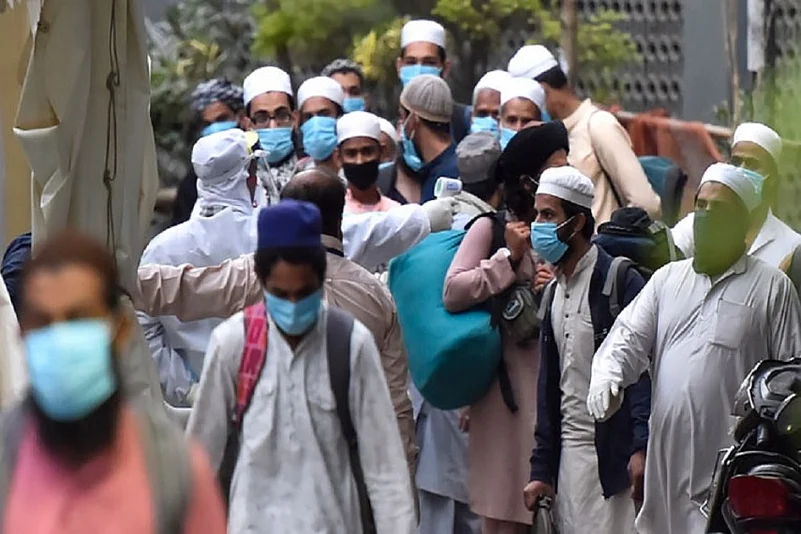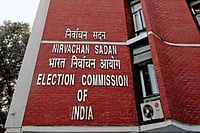A magistrate's court has discharged 28 members of the Tablighi Jamaat, including 21 foreign nationals, in two separate cases registered here.
The cases were registered after the controversial Tablighi Jamaat event in Delhi in March. The foreign nationals were accused of violating visa rules as well as norms put in place by the authorities following the coronavirus outbreak.
Last week, the Aurangabad bench of the Bombay High Court had quashed similar FIRs filed against 29 other foreign nationals who had visited Maharashtra after the Delhi event.
Citing the high court's order, Magistrate R H Jha on Tuesday said 28 members of the Tablighi Jamaat were entitled to be discharged from the offences registered against them.
Defence counsel Ismail Shaikh said the accused included 13 Bangladeshis, eight Malaysians, four Indians and four trustees who had helped the foreign nationals during their stay at Mumbra in Thane.
They had been booked by the city police under the Foreigners Act, 1946, Epidemic Diseases Act, 1897, and Disaster Management Act, 2005, apart from relevant sections of the IPC.
Shaikh in his submission had pointed out that there was no evidence in the charge sheet that when the accused arrived in India, COVID-19 cases had been reported in their country of origin.
In its order on August 21, the Aurangabad bench of the high court had said that foreign nationals who attended the Tablighi event were made "scapegoats", and allegations were leveled that they were responsible for spreading coronavirus
infection in the country.
Visits by these foreigners to mosques in India were not prohibited and there was nothing on record to show that this activity is prohibited permanently by the government, the high court said.


























